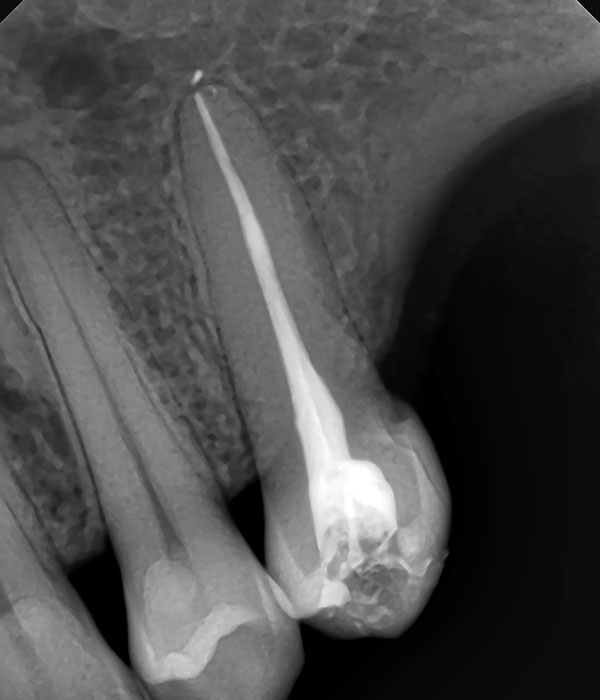What are Root Canals?
If you suffer from persistent, localized dental pain, you might have a severe tooth infection that requires a root canal to alleviate the problem. Root canals are a common dental procedure at Brook Trout Dental designed to clean up bacteria from infected roots of teeth. Telltale signs that could indicate that you need root canal treatment include swelling, sensitivity to extreme temperatures, discoloring, and chipped teeth.
Root Canal Therapy
The outer layer of your teeth contains a layer of enamel that works as both an insulator against temperature and a protector against daily oral activities such as chewing and grinding. Just beneath the enamel is the dentin, a hardy tissue extending to the tooth’s pulp. Hundreds of microscopic dentinal tubules fan out from the pulp through the dentine and into the enamel.
The dental pulp contains a network of tissue, nerves, and blood vessels that connect to the roots extending through to the jawbone. Any chipping or weakening of the enamel and dentin can very quickly lead to infections of the central pulp area. One of our dental professionals will remove the debris and infection in the pulp while attempting to preserve the crown of the tooth. This procedure is called a root canal.
What to Expect With Root Canal Therapy
People often think a root canal will be very painful and is the worst thing you can have done in a dental clinic. This is untrue, having anything done, even a root canal, to a tooth that is hurting is going to cause some pain. Dr. Weinhandl will prescribe you an antibiotic and painkiller so you can recover and have no pain before the root canal starts. Most root canals don’t even require numbing because the tooth is already dead. As long as care is taken to get your tooth to the point where it is not hurting, a root canal can be painless and very routine.
The goal of a root canal is to clean the inside while leaving the tooth intact as much as possible. Although the tooth is weaker after a root canal, the crown is usually left if it’s still intact and it’s a back molar. The aesthetics of the front teeth are important, so a composite filling is often used as an alternative to a crown.
How To Avoid Root Canal Therapy
A root canal infection happens when a tooth with decay or infection is untreated. To avoid a root canal, visit Brook Trout Dental for a dental check-up every six to 12 months, brush twice daily, floss, and get your teeth cleaned professionally by an oral hygienist.
With modern technology, many people in Casper report that root canal treatment is not as painful as they thought. Aesthetically, it’s better to save the tooth and repair it than to have it removed. If the infected root is neglected, it can cause an abscess to form, which can be painful. Some don’t have symptoms of root infection, so it’s important to get annual dental check-ups.
Are Root Canals Right For Me?
If you are experiencing tooth pain in Casper, root canal therapy could be the solution to relieve your pain. Visit our dentist today to schedule a consultation with our team and see if a root canal is the best option for you.

